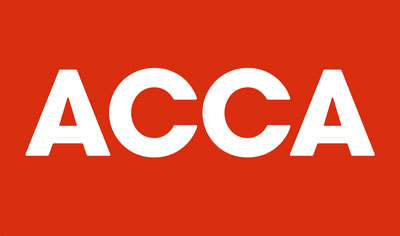ACCA Research: 48% of public believe auditors ‘could prevent company failures’

A survey of 1,000 members of the general public by ACCA (the Association of Chartered Certified Accountants) reveals auditors are expected to play a crucial role in company safeguarding.
- 48% of the UK public believe it is auditors who are responsible for avoiding company failures
- 41% expect auditors to always detect and report any fraud
- 65% believe audit should evolve to prevent company failures
However, only a quarter of respondents were able to accurately identify what an auditor does – give an opinion on whether the financial statements of a company give a true and fair view and do not include material misstatements due to fraud or error.
It comes as Sir John Kingman is reviewing both the role and remit of the regulator, the Financial Reporting Council (FRC). The Competition and Markets Authority (CMA) is also probing the audit sector following a request from Business Secretary Greg Clark, and on 12 November 2018 the Chair of the Business, Energy and Industrial Strategy (BEIS) Select Committee, Rachel Reeves, announced an inquiry into the future of audit.
ACCA’s survey highlights challenges for the accountancy profession, regulators and government in how to respond to public expectations of audit.
Andrew Gambier, ACCA’s head of audit and assurance, believes the findings make clarity in auditing essential.
He said: ‘The profession has long spoken about the expectation gap in audit, and our research shows it has failed to close that gap. It is clear that further education on the auditor’s role is required, backed by a proactive approach by the profession to address the public’s concern.
Gambier added, ‘Our research shows the urgent need for an open dialogue involving the profession, stakeholders and the public to understand what kind of audit future the public expects. The public sees audit as part of the solution, so we must work together to address their legitimate concerns about audit.’
‘In response to the Kingman Review, ACCA recommends more clearly defining the FRC’s scope and remit, to prioritise its role as the competent authority for audits of Public Interest Entities. We call for the FRC Board to refresh its membership to include stronger links with other UK regulatory bodies, including the Financial Conduct Authority and The Pensions Regulator.’
In response to the CMA audit market review, ACCA has expressed concern about many of the potential measures raised in the CMA’s Invitation to Comment, which may have unintended or unwanted adverse consequences.
Gambier said: ‘ACCA is concerned at the pace of the CMA review, and also that the CMA may not have fully explored previous recommendations for change in the context of the Competition Commission’s review of 2011–2014. The CMA has privileged access to these findings, and should exploit this to develop more workable proposals.
‘We recommend a two year cooling off period for auditors following the end of an audit, before any further form of consulting service is undertaken. Moreover, we also advise the CMA to consider a prohibition on management from firing their auditors, allowing them to complete their term and to maintain independence.’
Source: ACCA



























